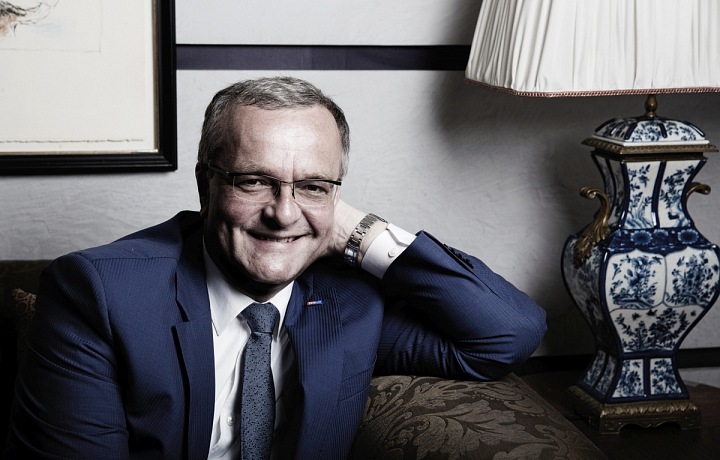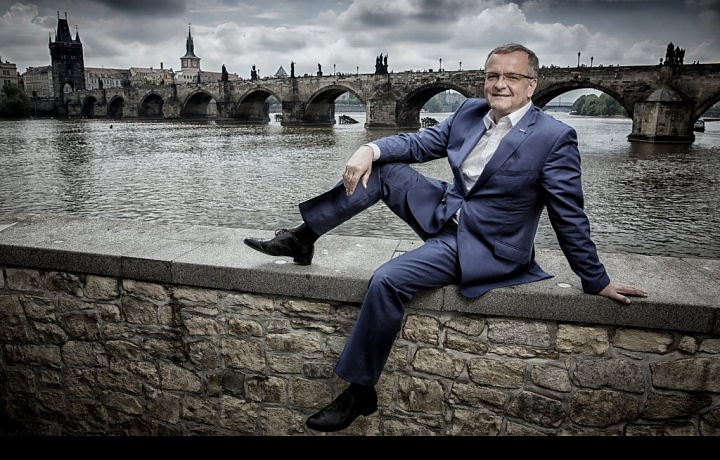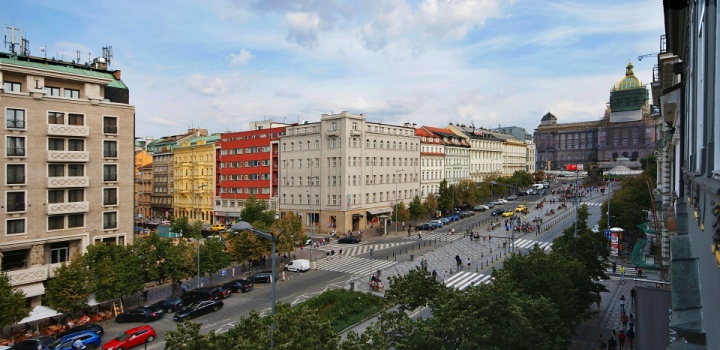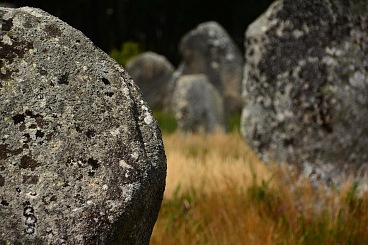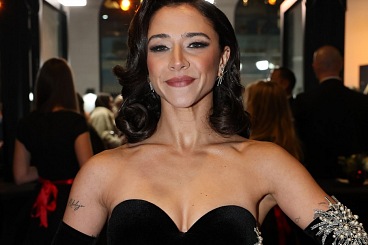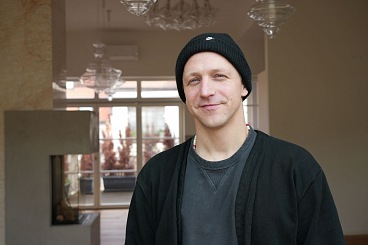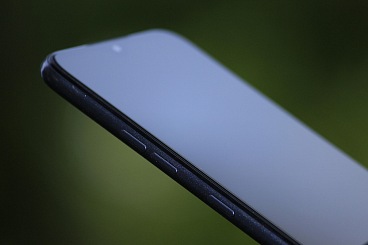Fast Confession - Miroslav Kalousek on politics and getting old: Babiš wastes the money I saved
Today he celebrates his 60th birthday and next year he will probably end his more than 22 years in the Chamber of Deputies. Miroslav Kalousek, the admired and hated politician, will no longer run for a position and will withdraw to the political backstage, where he wants to negotiate opposition cooperation. In the interview for LP-Life.com, he openly talks not only about this plan, but also about getting old, health and his great longing after extended weekends with opera and good food. He is a passionate fan of classical music and doesn't hesitate to "fly a little" to the other side of Europe to see famous singers.
How do you feel about the Czech Republic at the moment?
It will be very difficult and there are two options. Either the current populist politics will plunder the last safes on credit, pouring money on everything, and thanks to that they will be able to plunder further regardless of the future. Or the next year's election will be won by a responsible democratic majority and they will have to tell us honestly how we are doing.
If we are to invest in development, we must admit that we no longer have the range of free public services and social benefits that we are used to. On the contrary, we have to "function" in a relatively power-saving mode in order to be able to modernize the country, and many people are reluctant to hear that. I'm sure there will be a populist who says, "Don't worry, I'll get it all done for free."
Both scenarios really don't offer a simple future, and I'm trying to do my best to make it the "B" scenario. So that politicians can explain to people that there isn't just tomorrow, but also the day after tomorrow. And if we want to preserve the future, we must first and foremost save the present.
Not related to what is happening now, as the Minister of Finance, you have experienced the last crisis after 2009. Back then, you spearheaded a trend of austerity, today governments in Europe are more likely to want to invest. Have you changed your mind too?
I must emphasize that we have invested much more during the crisis than the government of Andrej Babiš invested in 2017 and 2018. So the talk about how we have undercut the investments is nonsense. We saved on the operating expenses.
The previous crisis took place in a completely different environment. During my time in the office, there was still the standard behavior of the central banks, there was no quantitative easing and money had some value. When I took over the Ministry of Finance in 2010, the interest rate on government bonds was 5.7% and the financial markets began to fear government bonds, that those might not be creditworthy assets. We had to convince them that they didn't have to be afraid of us, otherwise we wouldn't be able to earn on anything other than interest on loans. In 2011, they raised our rating by two notches, I was rated by the Financial Times as the most trusted Minister of Finance in EU, and we cut interest rates below 3%.
But that was at a time when quantitative easing was a forbidden word. In 2013, Mario Draghi became the head of the European Central Bank, and following the example of the US Fed, the central banks began a reckless printing of money. Money suddenly lost value, so it wasn't uncommon for the most creditworthy assets to be bought at negative interest rates, which, of course, made it easier for countries to service their debt and allowed companies to borrow money cheaper. So on one hand you are helping the economy to survive, on the other you are reducing competitiveness, because you have a lot of "zombies" in the market that normally wouldn't be able to be there. I see this as a policy that allows survival but doesn't allow development. And the future will pay for it.
In any case, I agree that in a crisis like this, it is necessary to invest heavily. I'm not sure whether it's possible to save yourself through public investments, but I'm sure that it's not possible to win this crisis from subsidies and benefits. And this government subsidizes and benefits much more than it invests.
Looks like you're more chagrined by the politics than ever before…
I'm not chagrined, but I realize that there are fewer and fewer good options. And I never saw things through rose-tinted glasses.
What helps you deal with sadness?
I have a pretty decent sense of humor and I don't know of a job that could be done without some fun. There has to be fun, even if the pockets are empty. (laughs)
How is life in your sixties?
Same as it was at fifty-nine, it's a year like any other. Age is just a number, I know 40-year-old grandpas and 80-year-old youngsters. I don't suffer from a midlife crisis, I accept it with humility. It all went by really fast but at the same time I hope it's not over yet.
During our interview a year ago, you told me you'd had a meniscus injury. Have there been any other health problems since then?
It has to do with the sixties, I have been suffering from advancing osteoarthritis for many years. It means I can swim, walk uphill, I should be more careful downhill, I can ride a bike and I even bought a stationary bicycle at home. But my beloved tennis is coming to an end. When I can't resist and go to play tennis, my knees become swollen, and that's not pleasant.
But that's the thing that comes with age, it's nothing to complain about. It's necessary to accept it with humility.
Do you take more care of yourself and look at your body with respect?
You know what? I actually do. Ten or twenty years ago, I thought about my lifestyle much less than I do now. I think a lot more about what and when I eat, I think more about exercising at least half an hour a day. It's always true that if you don't find time for that half an hour, then you are just lazy.
In those sixty years, have you been able to realize what success really means?
I have experienced a lot of successes and failures. Both are important because if you don't fall on your face sometimes, you won't realize the value of success. Success is a situation where you wanted to achieve something - and succeeded.
And is it fleeting?
It's fleeting, assuming nothing came out of it. It's not fleeting when you can turn back and say, "I think this was the right decision, and it lasts."
What is it in your case?
Maybe the fact that Andrej Babiš could throw money in all directions, because I had saved it for him. (laughs)
Some time ago you had a serious illness, so you kind of looked death in the eye. Has anything changed in your view of life priorities?
I don't think anything has changed permanently. Death in the eye… that's too dramatic, Mr. Senior Consultant said it was a close call. It wasn't a fight for life, it was a critical moment which could have led to an end.
I reassessed some of my life priorities, maybe I'm planning less ahead, because if you plan something five years ahead, tomorrow it may become completely irrelevant. You realize such things in a moment like that. And since then I appreciate every moment that I'm healthy.
You've recently announced your departure from the politics. Tell me more about it…
I don't like to call it a departure from the politics, because what is happening in the Chamber of Deputies now has little to do with politics. It's a parody of politics. It's no longer a duel of political ideas and arguments, but at best a duel about who will make a better "self-play". Nowadays, it's not even about arguments, it's all about absurd marketing.
And as for the reason, I've said it quite clearly already. If the forces that want democracy and the modernization of the country, not its further looting, are to win, then, given our electoral law, the opposition can't run for more than two candidates. Which means several conditions - and all of them are necessary.
The first is that the leaders have to come to an agreement, I can see an honest effort there. When they agree on a compromise, their parties won't like a number of points, and there is an awful lot of work to be done for the people of the regions to support the agreement. Remember the coalition of KDU-ČSL and STAN. The leaders agreed, held hands, jumped over the fences together, and then the parties said "no". Because it didn't work in practice.
And I'm already a veteran, I know almost everyone, and I think I can do a lot of work in that field. I can try to grind the friction surfaces, tell someone "don't lie and don't come up with surrogate arguments, it's just your personal ambition, there's no time for that now." You can only say this if you have known the person for a long time. And you also have to know that you yourself have no ambition. No one can think "oh, that Kalousek, I wonder what he's up to now". He's not up to anything. He's just putting as much effort, like a lot of other voters, to unite us. I have a free hand for this type of persuasion, because I won't run for any position anymore.
Was it a difficult decision?
It was a relatively long process, because there are many circumstances and reasons, but it was not a particularly difficult decision. I just needed to make sure that it was the right decision. It's a situation where all personal ambitions must be set aside.
So is this the end of you talking and performing in front of the camera?
I've never performed. (laughs) I will continue to express myself, but for the next few weeks and months, I want to have - and I already do - a series of informal conversations to convince people that these are the conditions that, if not met, we have no chance.
But you will no longer be an MP…
So I'll make a living by something else.
Do you have something in mind?
There are several options. You'll be surprised, but I've never planned my personal career. It has always been an acceptance of some challenge. This, too, is a challenge that I believe I can handle more or less successfully. And I'm not afraid of not being able to a living.
Many politicians, after the age of 60, are beginning to focus more on the family and grandchildren. Do you have grandchildren?
I have two grandchildren that make me happy.
What kind of grandfather are you?
You'd have to ask those boys. I like to borrow them, I like to have fun with them and I like returning them again most of all. (laughs)
But if you are no longer in active politics, you will undoubtedly have more time…
I think I will work anyway, whether I am employed somewhere or I have something of my own. I probably won't be less busy.
Tell me, what do you like to eat?
Unfortunately, everything. I've been struggling with it my whole life. (laughs) But at my age I'm just trying to be more mindful if it's not too heavy or caloric. I like fish, I prefer white meats, but I also like sirloin, duck and I like to go for Serbian pljeskavica. I just like good food, I only avoid sweet food. Some people love plum dumplings and similar, I don't, at most one as a dessert.
When you're at home and don't have to think about work and politics, what do you like to read, watch or listen to?
I like classical music, preferably opera. I'm not lazy to travel or fly around Europe for a good performance and top singers, such as to London, Paris, or Dresden. I have a favorite triathlon in Vienna - the Staatsoper, where I have tickets to the opera, Albertina, where there is always a nice exhibition, and Plachutta, where they cook well. That's something I really miss with the coronavirus now. I haven't been on an extended weekend with the opera for many months, most recently in February.
What about books?
I like good books, it's the same as with the food.
And is there anything you wouldn't pick up?
It's not that I wouldn't pick something up. I can say that I have never really enjoyed detective stories, with the exception of the hard genre - Raymond Chandler and Samuel Dashiell Hammett, these are the two names where I made an exception and read all their detective stories. But it was because of their style, not the detective plot.


